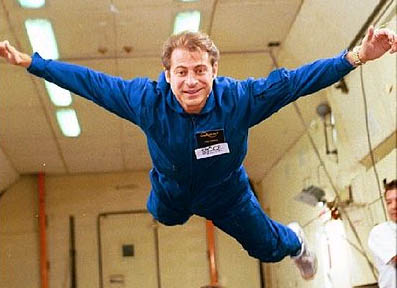
Content
| Public Brainstorm | Economic-Demographic Crisis Energy Environment Food and Water Human Overpopulation |
Club of Amsterdam blog
News about the Future
X Prize
Recommended Book: Physics of the Future by Michio Kaku
Final Report of the Future of Europe Group
Club of Amsterdam 2002-2012
10 Years of more than 100 events – 150 Club of Amsterdam Journals, many reports, articles, videos and more than 4,300 Members globally!
Join us at our Special Birthday event 10 Years Club of Amsterdam – Thursday, December 6, 18:30 – …!
Felix F Bopp, Founder & Chairman
Public Brainstorm
| December 6, 2012 will be the 10 Years Anniversary event of the Club of Amsterdam. It will be hosted by India House Amsterdam. We are going to promote and discuss ideas, statements, observations and solutions for five areas that are considered key challenges by Schloer Consulting Group. The main characteristics are exponential changes – the primary cause for critical societal and economic crisis. You are invited to contribute to our public brainstorming session ! Please email to editor@clubofamsterdam.com Photos courtesy of UNEP Foresight Process on Emerging Environmental Issues “21 Issues for the 21st Century  |
Economic-Demographic Crisis
Source: European Commission, “Demography Report, 2010 – Older, more numerous and diverse Europeans”
“Gradual but nonetheless major changes are affecting the population of Europe. Two main positive trends are emerging: a slight increase in fertility and greater life expectancy. Lowest-low fertility – below 1.3 children per woman – has ended in all Member State and the most recent figure for EU-27 was 1.6 and could rise to over 1.7 if adjustments for the postponement of births (the so-called ‘tempo effect’) are taken into account. This small adjustment does not make up for the shortfall in relation to the replacement ratio of 2.1, but it could contribute to a slower rate of population decline in the medium/longer term, in conjunction with a possible increase in fertility as EU Member States become wealthier.
The EUROPOP2008 projections prepared by Eurostat and presented in the previous Demography Report indicate that by 2014 the working age population (20-64) will start to shrink, as the large baby-boom cohorts born immediately after World War II are now entering their sixties and retiring.
The number of people aged 60 and above in the EU is now rising by more than two million every year, roughly twice the rate observed until about three years ago. The working population is also ageing, as the proportion of older workers in employment increases compared to the cohorts made up of younger workers. Every year about 5 million children are born in the EU-27
and over 2 million people immigrate from third countries. Births outnumber deaths by several hundred thousand persons each year, whereas net migration is well over a million. As a result, migration accounts for the largest proportion of the EU’s population growth.
In 2008 life expectancy for the EU-27 was 76.4 for men and 82.4 for women.
It is too early to draw any firm conclusions about the effect of the crisis on fertility and life expectancy. Recent experience with past recessions indicates that both fertility and mortality may initially decrease slightly, only to return to their pre-recession levels shortly after the crisis has ended.”

Credit: UN Photo/R Kollar
Energy
SolarCity
www.solarcity.com
SolarCity is a national leader in clean energy services in the United States. They make clean energy available to homeowners, businesses, schools, non-profits and government organizations. SolarCity is a company that offers integrated sales, financing, design, installation, monitoring and efficiency services.
Copenhagen Cleantech Cluster (CCC)
www.cphcleantech.com
Copenhagen Cleantech Cluster is an initiative launched by Danish cleantech companies, research institutions and public organisations to sustain and develop world-class cleantech competencies..
Japan Renewable Energy Foundation (JREF)
Masayoshi Son, founder and CEO of Softbank, one of Japan’s largest Internet conglomerates, established the Japan Renewable Energy Foundation with the goal of moving Japan away from its dependence on nuclear energy towards more eco friendly and safer renewable sources.
His plan is for the country to embark on a massive build-up of renewable systems comprised, at least initially, of solar, geothermal and wind collection.
Serious Energy
www.seriousenergy.com
Serious Energy upgraded the 6,514 dual pane windows in the Empire State Building by reusing all existing glass and creating super-insulating glass units in a dedicated processing space located onsite in the building.
Smart Hydro Power (SHP)
www.smart-hydro.de
Smart Hydro Power is a German based engineering company focused on developing and implementing hydro electric power generation using kinetic power only – e.g. without the need for building dams.
Enerkem
www.enerkem.com
Enerkem develops renewable biofuels and chemicals from waste.
Through the combination of a proprietary thermochemical technology platform and community-based advanced facilities, Enerkem addresses the challenges of oil dependence and waste disposal.
The company’s process and business model are designed to profitably produce cellulosic ethanol from a large municipal solid waste supply.
Solar Impulse
www.solarimpulse.com
Solar Impulse has demonstrated that a solar-powered airplane can fly day and night using no fuel. The next challenge is to fly around the world. The gigantic, but ultra-lightweight dimensions of this revolutionary airplane – capable of flying day and night without fuel – are its trademark feature.
Renewable Energy in Germany

Environment
Vitoria-Gasteiz
www.vitoria-gasteiz.org
Vitoria-Gasteiz, founded in 1181, is second in size (only to Bilbao) in the Basque Country, and has some 240,000 people currently inhabiting this gem in northern Spain. Vitoria-Gasteiz is the capital of the Álava province and of the Basque Country. The city holds the title of European Green Capital in 2012.
Flexenclosure
www.flexenclosure.com
Flexenclosure is an engineering company based in Sweden and specialises in intelligent telecom site solutions, helping operators all over the world expand and modernise their networks. Their products prove that switching to green energy is an efficient way to cut operating costs.
Ecologic Brands
www.ecologicbrands.com
The Ecologic team is committed to giving consumers and brands better packaging choices and replacing shelf after shelf of rigid plastic, headed for landfill, with a new kind of bottle that uses our limited resources more efficiently.
Solvatten
www.solvatten.se
Solvatten is a household water treatment unit. The portable 11 liter container is a patented and scientifically proven Swedish invention. Put Solvatten in a sunny place, give it 2-6 hours and the water will be drinkable. An indicator shows when it is safe to drink. Solvatten can also be used as a solar water heater, providing hot water for cooking and hygiene.
Blue Marine Foundation
www.bluemarinefoundation.com
BLUE creates flexible, case-by-case solutions to the marine crisis through public-private partnerships.
By raising funds to leverage conservation gains, BLUE aims to increase the area of ocean protected by marine reserves from just over 3% to 10% over the next ten years. BLUE is not just another NGO; it is an enabler of NGOs. We will articulate and deliver the resources required to save the oceans.
Environment Support Group
www.esgindia.org
Environment Support Group works with a variety of environmental and social justice initiatives across India and the world. We pro-actively address issues and concerns collaborating across sectors and disciplines keeping the interests of local project affected communities and voiceless ecosystems in primary focus.

Credit: UN Photo/Eskinder Debebe
Food and water
UNDP: “Water is vital for natural systems and human development. Irrigated lands produce two to three times as much as rain fed agriculture. Agriculture accounts for 70–85 percent of water use – and an estimated 20 percent of global grain production uses water unsustainably. And demand for water for food production is projected to double by 2050.”
Food
“The current annual fish catch of 145 million tonnes far exceeds the maximum annual sustainable yield of 80–100 million tonnes.”
The 2011 Global Hunger Index (GHI) shows that global hunger has declined since 1990, but not dramatically, and remains at a level characterized as “serious.”
IFPRI: “The terminology used to refer to different concepts of hunger can be confusing. “Hunger” is usually understood to refer to the discomfort associated with lack of food. The FAO defines it specifically as consumption of fewer than about 1,800 kilocalories a day – the minimum that most people require to live a healthy and productive life. The term “undernutrition” signifies deficiencies in energy, protein, essential vitamins and minerals, or any or all of
these. Undernutrition is the result of inadequate intake of food –
in terms of either quantity or quality – or poor utilization of nutrients due to infections or other illnesses, or a combination of these two factors. “Malnutrition” refers more broadly to both undernutrition (problems of deficiencies) and overnutrition (consumption of too many calories in relation to requirements, with or without low intake of micronutrient-rich foods). Both conditions contribute to poor health.”
Food Research and Action Center: “Two-thirds of U.S. adults are overweight or obese. In general, rates of overweight and obesity are higher for African-American and Hispanic women than Caucasian women, higher for Hispanic men than Caucasian and African-American men, higher in the South and Midwest, and tend to increase with age. Research also shows that the heaviest Americans have become even heavier the past decade.”
BBC: “By around 2050, the swelling global population and affluence is expected to increase demand for food production by 70%, with a 100% increase expected in some developing countries. Yet most of the globe’s best farmland is already planted or grazed. And when you factor in climate change, limited fresh water supplies and competition for harvests from biofuel makers, it is clear the world faces a major challenge.”

Credit: Shutterstock/dvande
Water
UNDP: “Water withdrawals have tripled over the last 50 years.56 Pumping from aquifers exceeds natural replenishment, so water tables are falling. The main causes: destruction of wetlands, watersheds and natural water towers to make way for industrial and agricultural use.”
“By 2025 water scarcity is expected to affect more than 1.8 billion people.”
Worldometers.info: “Water consumed this year (billion of liters):
3,593,777.
The data on water consumption in the world is provided by the United Nations (UN, UNESCO, and FAO):
Worldwide, agriculture accounts for 70% of all water consumption, compared to 20% for industry and 10% for domestic use. In industrialized nations, however, industries consume more than half of the water available for human use. Belgium, for example, uses 80% of the water available for industry.
Freshwater withdrawals have tripled over the last 50 years. Demand for freshwater is increasing by 64 billion cubic meters a year (1 cubic meter = 1,000 liters).
Almost 80% of diseases in so called “developing” countries are associated with water, causing some three million early deaths. For example, 5,000 children die every day from diarrhea, or one every 17 seconds.”

Credit: UN Photo
Human Overpopulation
Reuters: “As the world’s population looks set to grow to nearly 9 billion by 2040 from 7 billion now, and the number of middle-class consumers increases by 3 billion over the next 20 years, the demand for resources will rise exponentially.
Even by 2030, the world will need at least 50 percent more food, 45 percent more energy and 30 percent more water…at a time when a changing environment is creating new limits to supply.”
UNFPA: “Between 2011 and 2100, the population of high-fertility countries, which includes most of sub-Saharan Africa, is projected to triple, passing from 1.2 billion to 4.2 billion. During the same period, the population of intermediate-fertility countries, such as the United States, Mexico and India, will increase by just 26 per cent, while that of low-fertility countries, which includes most of Europe, China and Australia, will decline by about 20 per cent.”
The Dalai Lama’s Solution to Overpopulation
Albert Einstein: “I am convinced that some political and social activities and practices of the Catholic organizations are detrimental and even dangerous for the community as a whole, here and everywhere. I mention here only the fight against birth control at a time when overpopulation in various countries has become a serious threat to the health of people and a grave obstacle to any attempt to organize peace on this planet.”
Joel Cohen’s “How Many People Can The Earth Support?”
10 Years Club of Amsterdam
 Our Season 2012/2012 starts with the 10th Anniversary event of the Club of Amsterdam. We hope to see you at 10 Years Club of Amsterdam Thursday, December 6, 18:30 Location: India House Amsterdam, Spuistraat 239, 1012 VP Amsterdam |
Club of Amsterdam blog

| Club of Amsterdam blog http://clubofamsterdam.blogspot.com Public Brainstorm: Economic-Demographic Crisis Public Brainstorm: Energy Public Brainstorm: Environment Public Brainstorm: Food and Water Public Brainstorm: Human Overpopulation |
News about the Future

Plastic solar cells pave way for clean energy industry
A Flinders University researcher has been developing a cheaper and faster way of making large-scale plastic solar cells using a lamination technique, paving the way for a lucrative new clean energy industry. The novel method, developed by PhD candidate Anirudh Sharma, is a promising alternative to the expensive fabrication techniques currently used in the renewable energy sector, and would make the commercialisation of plastic solar cell technology more viable.

Planes will fly using agricultural and forest waste
The “ProBio3” project The aviation industry has identified the development of sustainable biofuels as one of the biggest challenge of the ten next years; the deal is to lower environmental impact of fossil fuel use on climate change with increasing energy demand, to greater energy independence and fuel security and therefore an outstanding safeguard against volatile supplies and oil prices. Using alternative fuels to kerosene is crucial for the European aeronautic industry competitiveness, economic growth and sustainable development when the increase of aviation fuel will rise from 200 mT in 2006 up to 450 – 550 mT to 2036. In this context, the deal of ProBio3 project is to develop a new promising pathway to produce sustainable bio jet fuel: the microbial conversion on specific fatty acids of carbon substrates from renewable non food resources and industrial byproducts.
“Tomorrow, planes will fly using agricultural and forest waste,” said Carole Molina-Jouve, a professor at Toulouse’s National Institute of Applied Sciences (Insa), who is coordinating the ProBio3 project.”We already know how to set up a basic production line but we must move towards an industrial line,” she said. “We need to translate what is done in laboratories to the real environment while improving its profitability and efficiency.”
X Prize

Top Prize Concept Award
The X PRIZE Foundation is an educational nonprofit organization whose mission is to bring about radical breakthroughs for the benefit of humanity, thereby inspiring the formation of new industries and the revitalization of markets that are currently stuck due to existing failures or a commonly held belief that a solution is not possible. The Foundation addresses the world’s Grand Challenges by creating and managing large-scale, high-profile, incentivized prize competitions that stimulate investment in research and development worth far more than the prize itself. It motivates and inspires brilliant innovators from all disciplines to leverage their intellectual and financial capital.
The X PRIZE Foundation conducts competitions in five Prize Groups: Education; Global Development; Energy & Environment; Life Sciences; and Exploration. It is a U.S.-based organization led by Chairman and CEO Dr. Peter H. Diamandis and Vice Chairman and President Robert K. Weiss, as well as governed by a group of visionary leaders including the Board of Trustees, Vision Circle members, Spirit of Innovation members, corporate partners and sponsors. Today, the X PRIZE Foundation is widely recognized as a leader in fostering innovation through incentivized competition.
The Google Lunar X PRIZE is igniting a new era of lunar exploration by offering the largest international incentive prize of all time. A total of $30 million in prizes are available to the first privately funded teams to safely land a robot on the surface of the Moon, have that robot travel 500 meters over the lunar surface, and send video, images and data back to the Earth. Teams must be at least 90% privately funded, though commercially reasonable sales to government customers are allowed without limit.
Team registration for the competition closed on December 31, 2010. There are currently 26 teams located around the world who are fundraising, mission planning, and building robots in a new race to the Moon — what we like to call, “Moon 2.0”. The teams have until the end of 2015 to get to the Moon, meet the prize objectives, and win the prize purses.
The Archon Genomics X PRIZE presented by Express Scripts® is an incentivized prize competition that will award $10 million to the first team to rapidly, accurately and economically sequence 100 whole human genomes to a level of accuracy never before achieved.
The 100 human genomes to be sequenced in this competition will be donated by 100 centenarians (ages 100 or older) from all over the world, known as the 100 Over 100. Sequencing the genomes of the 100 Over 100 presents an unprecedented opportunity to identify those “rare genes” that protect against diseases, while giving researchers valuable clues to health and longevity. These centenarians’ genes are providing us with a window to the past that will significantly impact the future of healthcare.
The result will be the world’s first “medical grade” genome, a critically-needed clinical standard that will transform genomic research into usable medical information to improve patient diagnosis and treatment. This global competition will inspire breakthrough genome sequencing innovations and technologies that will usher in a new era of personalized medicine.
The Qualcomm Tricorder X PRIZE is a $10 million global competition to stimulate innovation and integration of precision diagnostic technologies, making reliable health diagnoses available directly to “health consumers” in their homes.
The dire need for improvements in health and healthcare in the U.S. has captured the attention of government, industry, and private citizens for years. But a viable solution has yet evaded one of the most technologically advanced, educated and prosperous nations on the globe. Integrated diagnostic technology, once available on a consumer mobile device that is easy to use, will allow individuals to incorporate health knowledge and decision-making into their daily lives.
Advances in fields such as artificial intelligence, wireless sensing, imaging diagnostics, lab-on-a-chip, and molecular biology will enable better choices in when, where, and how individuals receive care, thus making healthcare more convenient, affordable, and accessible. The winner will be the team whose technology most accurately diagnoses a set of diseases independent of a healthcare professional or facility, and that provides the best consumer user experience with their device.
The Nokia Sensing X CHALLENGE is a $2.25 million global competition to stimulate the development of sensors and sensing technology to drastically improve and expand the quality and access to healthcare across a wide variety of settings for consumers all around the globe.
Demand for healthcare resources continues to grow across the world with increased demand to extend capabilities to make current systems more efficient.
Sensors are currently providing patients and healthcare providers with information that is critical to the prevention, detection, diagnosis, treatment and management of health conditions. In fact, much of modern medicine would simply not be possible or cost effective without sensors, which include thermometers, blood pressure monitors, glucose monitors, electrocardiography (EKG), electroencephalography (EEG) and various forms of imaging sensors such as ultrasound. Sensing technologies are also being used to track the spread of disease by public health agencies and to monitor the public’s exposure to environmental factors, such as pollution.
The X PRIZE Foundation believes that health sensors and sensing solutions have the potential to drastically improve and extend healthcare capabilities. Continuous monitoring through sensors and sensing technologies can significantly contribute to the reduction of healthcare costs by keeping people healthier, avoiding unnecessary hospitalization and ensuring that those who need urgent care can get it sooner.
Recommended Book
Physics of the Future: How Science Will Shape Human Destiny and Our Daily Lives by the Year 2100
By Michio Kaku
Space elevators. Internet-enabled contact lenses. Cars that fly by floating on magnetic fields. This is the stuff of science fiction – it’s also daily life in the year 2100.
Renowned theoretical physicist Michio Kaku details the developments in computer technology, artificial intelligence, medicine, space travel, and more, that are poised to happen over the next hundred years. He also considers how these inventions will affect the world economy, addressing the key questions: Who will have jobs? Which nations will prosper? Kaku interviews three hundred of the world’s top scientists – working in their labs on astonishing prototypes. He also takes into account the rigorous scientific principles that regulate how quickly, how safely, and how far technologies can advance. In Physics of the Future, Kaku forecasts a century of earthshaking advances in technology that could make even the last centuries’ leaps and bounds seem insignificant.
Final Report of the Future of Europe Group
The Report finalising seven months of work by the Group was adopted during a meeting of the Future of Europe Group held in Warsaw on 17 September 2012. The final meeting of the Future of Europe Group was attended by the Foreign Ministers and Deputy Foreign Ministers of Austria, Belgium, Denmark, France, Italy, Germany, Luxembourg, the Netherlands, Poland, Portugal and Spain.
In the Report, the Foreign Ministers put forward concrete proposals in the debate on the future of the European Union, including on the EU’s position in the international environment and the future institutional framework. It is also designed to be part of the broader debate on the European Union, which is taking place as a consequence of the financial and economic crisis. The Report includes proposals to improve the situation within the EU in the framework of existing treaties, as well as suggestions for potential directions of treaty changes in the longer-term perspective.
The Report also includes postulates put forward by Minister Radoslaw Sikorski, e.g. to strengthen the European Commission or create joint EU representation in international organizations. Other initiatives worth pursuing include postulates to boost the EU’s democratic legitimacy through “European Parliament elections on the same day in all member states, the drawing up of a (limited) European list and a more public procedure in the Parliament to appoint the Commission President.”
The members of the Group will present the Report not just to their counterparts in all EU Member States, but also to European Council President Herman Van Rompuy, European Commission President Jose Manuel Barroso, High Representative Catherine Ashton, as well as MEPs and representatives of national parliaments.
Introduction and Summary
The European Union has reached a decisive juncture. The on-going sovereign debt crisis and the ever-accelerating process of globalization pose an unprecedented dual challenge for Europe. We will have to master it if we want our continent to enjoy a bright future and effectively promote our interests and values in a more polycentric world.
The crisis has long also had a political dimension. In many parts of Europe, nationalism and populism are on the rise, while the feeling of solidarity and sense of belonging in Europe are dwindling. We have to take action to restore confidence in our joint project. The political debate about the future of the European project has to be conducted now, and it has to take place all across Europe. Crucially, it needs to engage Europe´s citizens.
In the following report, we put forward concrete proposals designed to address the challenges that Europe is facing. Some are short- and some are long-term. Many can be done within the existing treaty framework; some may need amendments to the treaties. What is important, is to get the sequencing and the balance right, combining what can be realistically achieved in due course with a longer term perspective and vision for a stronger Europe. Clearly, strengthening EMU is the key element in our efforts to overcome the present crisis.
The report reflects our personal thoughts. We wish to underline that not all participating Ministers agree with all proposals that have been put forward in the course of our discussions, and that the Member States’ individual treaty obligations and rights within the various policy areas have to be taken into account. They can be summarized as follows:
I. Strengthening the Economic and Monetary Union has absolute priority.
The Euro has profound economic advantages and is the most powerful symbol of European integration. Our proposals provide concrete input for the process of EMU reform launched by the June European Council. In doing so, our focus lies on initiatives within the scope of the existing treaties. However, we should not exclude the possibility of treaty changes if this proves to be necessary. We need to
- further enhance the reinforced economic governance framework by (establishing mechanisms at EU level, both to oversee that member states’ budgets are in line with European rules and to develop further European solidarity.)
- make economic policy coordination between Member States more binding in selected areas which are key for sustainable economic growth and employment and essential for the stability of the Eurozone. This will help overcome existing imbalances and strengthen overall competitiveness.
- establish an effective single supervisory mechanism, involving the ECB, for banks in the Euro area and those MS that wish to join in such a mechanism,
- ensure full democratic legitimacy and accountability. If additional action is taken at European level and this concerns EU competences, the European Parliament has to be involved either through co-decision or consultation. Most members were of the view that, if a decision applies only to the Euro area plus other “pre-in” member states who wish to participate already at this stage, ways should be explored to involve the MEPs from these countries ( – while fully respecting the integrity of the European Union and the European Parliament as a whole.) If national competences are concerned, in particular the budget, national parliaments have to agree. Cooperation between the European and national Parliaments should be further strengthened by creating a permanent joint committee.
II. We believe that once the Euro crisis has been overcome, we must also improve the overall functioning of the European Union.
In particular, the EU must take decisive steps to strengthen its act on the world stage. This should be tackled beyond and separately from EMU reform. Some of these measures could be implemented on the basis of the existing treaties – possibly already in the short term – while others could only be addressed in the long term through treaty changes.
- The EU must enhance the coherence and political clout of its external action. We call for a substantial revision of the decision on the European External Action Service (EEAS) in 2013. The High Representative/Vice-President should be rendered responsible for key external action areas. The EU also needs to fundamentally reinforce the Common Security and Defence Policy and shape relations with strategic partners more effectively.
In the long term, we should seek more majority decisions in the CFSP sphere, joint representation in international organizations, where possible, and a European defence policy. For some members of the Group this could eventually involve a European army. - Strengthening specific policies must go hand in hand with institutional reforms. The Commission should be strengthened so it can fully and effectively fulfil its role as the engine of the Community method. One possibility would be the creation of specific clusters with “senior” and “junior” Commissioners. The General Affairs Council should be empowered to fully assume the coordinating role foreseen for it in the Treaty. The European Parliament should boost its democratic visibility by the nomination of a European top candidate by each political group for the next EP elections.
- In a realistic view, in the long term treaty reform in a European Union of 28 or more Member States will become more and more difficult.( According to most members of the Group, both the adoption and the subsequent entry into force of treaty revisions (with the exception of enlargement) should be implemented by a super-qualified majority of the EU Member States and their population. They would be binding for those MS that have ratified them.)
- At the end of a long process, a more streamlined and efficient system for the separation of powers in Europe which enjoys full democratic legitimacy should be envisaged. For some members of the Group, this could include a directly elected Commission President who personally appoints the members of his “European Government”, a European Parliament with the powers to initiate legislation and a second chamber for the member states.
I. Overcoming the current crisis by fundamentally strengthening the economic and monetary union
The sovereign debt crisis in the euro area has long become a crisis of confidence in the long-term ability of individual euro states to restore stability.
Sound public finances, competitiveness, growth and employment should be promoted together. At European level, we should take the Single Market, one of our main assets and the most powerful engine for growth, to a new stage of development. We should increase the support for SMEs, including by ensuring their easier access to EU funds and stimulating investment, as exemplified by the European Pact for Growth and Jobs; in this respect we should also implement the decisions for a stronger role of the EIB. Finally, we should strengthen job creation, targeting in particular youth unemployment.
However, we will only be able to resolve the Euro crisis in a sustainable manner if we overcome the crisis of confidence within the Euro area. For this, we have to fundamentally strengthen the Economic and Monetary Union.
Work to fundamentally reform EMU will be based on the four building blocks identified by the President of the European Council, together with the President of the Commission, the President of the Euro group and the President of the European Central Bank, in their report to the June 2012 European Council. We need steps towards an integrated financial framework, an integrated budgetary framework, an integrated economic policy framework as well as measures to ensure the necessary democratic legitimacy and accountability.
An efficient and stable Economic and Monetary Union is of central importance to the functioning of the European Union as a whole. While of primary concern to Euro area MS, this affects all EU Member States, also those which have not yet introduced the Euro. Reforms should therefore be undertaken where possible in the framework of the EU-27. All necessary reform steps should be taken to deepen the EMU. Our focus lies on initiatives within the scope of the existing treaties; however, we should not exclude the possibility of treaty changes if this proves to be necessary.
An integrated budgetary framework
In the last two years, important steps have been taken to reinforce the framework for budgetary discipline in the Euro area in particular. We need to rapidly complete work on the Two-Pack and swiftly implement the Fiscal Compact. But we need to make mechanisms at EU level more effective to ensure that all Member States prevent and correct unsustainable fiscal policies and stick to the agreed rules in their individual budgetary procedures. Within the Commission, the role of the ECFIN Commissioner should be reinforced.
On the path towards an integrated budgetary framework,( the following should go hand in hand:
- effective oversight powers at European level with concrete competences for European institutions to oversee the budgets and implementation of fiscal policies of member states in order to ensure that Member States comply with the commitments on deficit and debt reduction they have agreed upon. In this respect, the responsibility of the Member States for the composition of their budgets has to be fully respected.
- further European solidarity mechanisms; some members of the Group suggested steps towards mutualisation of sovereign risk.)
An integrated economic policy framework
We need to overcome the fundamental flaw of EMU – monetary union without economic union. This does not mean that all economic policy measures should be decided at European level. But for certain key economic policy issues of particular relevance for sustainable economic growth and employment and the sustainability of the Eurozone we need the right mix of effective and binding coordination at European level and healthy competition of national systems and more effective ways of exchanging best practice. This concerns in particular the functioning of labour markets as well as the sustainability of pension systems. We should use the existing options within the treaties, including by enhanced cooperation. Many members were of the view that, in addition, the current voluntary commitments in relevant areas of the Euro Plus Pact should be made binding. This should be implemented in the framework of an economic partnership programme between the Member States and the European level, similar to that foreseen in the Treaty on Stability, Coordination and Governance.
An integrated financial framework
We need bolder steps to improve the functioning of European financial markets. Therefore, we are in favour of an effective single supervisory mechanism, involving the ECB, for banks in the Euro area and those Member States that wish to join in such a mechanism.
Some members of the Group underlined the importance of a common deposit insurance scheme and of a European restructuring and resolution scheme.
In the medium-term, the Euro area must be able to resolve potential problems in the Economic and Monetary Union by itself. Therefore, the European Stability Mechanism should be further developed into a “European Monetary Fund” with adequate powers.
Strengthening democratic legitimacy and accountability
A fundamental deepening of the Economic and Monetary Union must go hand in hand with greater democratic legitimacy. Wherever new competences are created at European level or closer coordination of national policies is established, full democratic control has to be ensured.
- The European Parliament should be closely involved in the further development of the EMU in line with the Community method and its role should be strengthened. If actions at European level – either within the framework of the EU or through intensified coordination of member states – concern EU competences, the European Parliament has to be part of the decision-making – either through co-decision or consultation. For example, the European Parliament should, among other things, be consulted within the scope of the European semester before the formulation of fundamental aspects (e.g. the Annual Growth Survey) or on concrete recommendations affecting the EU or the euro area as a whole. If we introduce more binding coordination at European level with regard to specific elements of the Euro Plus Pact, the European Parliament should be consulted here, too. Most members were of the view that, if a decision applies only to the Euro area plus other “pre-in” member states who wish to participate, ways should be explored to involve the MEPs from these countries( – while fully respecting the integrity of the European Union and the European Parliament as a whole.) If funds from a possible central budget involving these countries are drawn upon to support structural reforms in one of these Member States, the European Parliament, with a specific role for the MEPs from the countries involved, has to agree according to the procedures foreseen in the treaties.
- If additional actions at European level concern national competences, in particular the budget, the national parliaments have to agree. The European Parliament should also be informed.
- In addition, cooperation between the European Parliament and national parliaments should be placed on a new footing in the sphere of economic and fiscal policies by creating a permanent joint committee.
II. Facilitating further integration steps and the long-term governance structure of the European Union
Once the Euro crisis has been overcome, we must also improve the overall functioning of the European Union. In particular, the EU must take decisive steps to strengthen its act on the world stage. This should be tackled beyond and separately from EMU reform. Some of these measures could be implemented on the basis of the existing treaties – possibly already in the short term – while others could only be addressed in the long term through treaty changes, to be agreed upon on the basis of a Convention.
a) Europe as a global player
In the global competition with other economies, ideas and models of society, the countries of Europe will uphold their values and pursue their interests successfully only if we stand united. To this end, we need a comprehensive and integrated approach to all components of the EU’s international profile. Beyond CFSP and CSDP, it must include, among other things, issues relating to trade and external economic affairs policy, development aid, enlargement and neighbourhood policy, the management of migration flows, climate negotiations and energy security.
- We have to enhance the coherence of the EU’s external action. To achieve a comprehensive and integrated approach for all components of the EU’s international profile, the European External Action Service (EEAS) should be strengthened within the framework of the review of the EEAS Decision in 2013. The High Representative/Vice-President (and the EEAS) should be responsible for central external action areas (e.g. Neighbourhood Policy); their role in the area of development cooperation should also be strengthened. For other areas its institutional capacity for coordinating the different EU actors has to be strengthened. This is necessary in particular to enable the High Representative to assume in full her role of coordinator within the Commission. There should also be clear rules on cooperation between the High Representative/Vice-President and other Commissioners in the sphere of external action (e.g. in the framework of a possible creation of “senior” and “junior” Commissioners). The EU has to act more united in international organizations; e.g. by delivering CFSP statements on behalf of the EU.
- There is a need to strengthen the Common Security and Defence Policy. Our defence policy should have more ambitious goals which go beyond “pooling and sharing”. The possibilities of the Lisbon Treaty, in particular the establishment of Permanent Structured Cooperation should be implemented.
- We have to make our relations with our strategic partners more effective. The High Representative has a leading role to play here; she should be supported by Member States.
- We must improve the setting of priorities in the sphere of external relations. We have to improve how the Foreign Affairs Council works. On the basis of a six-monthly agenda planning, we have to make our consultations more strategic and focused. We need more informal meetings in the Gymnich format and better interaction with the European Council; one meeting per year should focus on external relations policy with the participation of the Foreign Ministers. We should consider reviewing the European Security Strategy.
To make the EU into a real actor on the global scene we believe that we should in the long term:
- introduce more majority decisions in the CFSP sphere or at least prevent one single member state from being able to obstruct initiatives(, and in this framework also further develop the concept of constructive abstention;)
- seek, where possible, joint representation in international organizations;
- aim for a European Defence Policy with joint efforts regarding the defence industry (e.g. the creation of a single market for armament projects); for some members of the Group this could eventually involve a European army.
b) Strengthening other policy areas
If Europe wants to hold its own in the new global order, we will also need increased integration in other central political fields. In the sphere of justice and home affairs, we therefore propose that the protection of the Schengen area’s external borders be strengthened (by creating a “European Border Police”) or, in the medium term, that a European visa be created. Another field where we need “more Europe” is sustainable energy policy: we need to create a functioning internal energy market through European energy infrastructure, improve energy efficiency and define common external energy relations.
c) Institutional reforms: Strengthening the EU’s effectiveness and democratic legitimacy
In addition to the specific aspect of EMU reform, additional rights at European level or a closer coordination of national policies require a strengthened EU capacity for action and enhanced democratic legitimacy.
Improved capacity for action
- The Commission must be strengthened so that it can fully and effectively fulfil its indispensable role as the engine of the Community method. Its internal organization and its procedures should be strengthened (one possibility would be the creation of specific clusters with “senior” and “junior” Commissioners); in the medium term the number of commissioners should be addressed.
- Cooperation within the Council needs to be improved, also with a view to ensuring that the European Council is suitably prepared by the different Council formations, above all by the General Affairs Council which should fully assume its coordinating role foreseen in the Treaty. Internal consultations in the different Council formations must be made more efficient (e.g. through the use of bundled interventions). In the medium term, we should create more permanent chairs and strike the right balance between permanent and rotational chairs, also in the General Affairs Council, to increase the efficiency of the work in the various Council formations. Moreover, the possibility of better dovetailing the work of the Council and the Commission and could be examined. Some Ministers suggested the creation of a double-hatted post of President of the Commission and President of the European Council.
- The efficiency of European decisions can also be increased by making more use of differenti-ated integration, a possibility provided for in the treaties, but hardly implemented so far. In the medium term, to improve the European Union’s capacity to act, we should extend the scope of decisions to be taken by qualified majority.
Increasing democratic legitimacy - The European Parliament’s democratic visibility should be further increased: one key step would be, for instance, the nomination of a European top candidate for the next European Parliament elections by each European political group who could also stand for the post of Commission President. In addition, we need a greater distinction between majority and minority in the Parliament, European Parliament elections on the same day in all member states, the drawing up of a (limited) European list and a more public procedure in the Parliament to appoint the Commission President. European political parties should work towards the building of a truly “European political space”, which would draw European citizens’ attention to key political issues concerning their common future.
- National parliaments should become more effectively involved in the work of the European Union in the spirit of the Lisbon Treaty. To this effect, contacts between the EP and national parliaments should be strengthened further. This could be done e.g. through regular meetings, the presence of MEP’s during strategic EU-debates in national parliaments, by reinforcing the COSAC-framework and by enhancing EU-wide networks of national parliamentary committees dealing with the same particular EU-dossiers. The core task of national parliaments will however remain to control the action of their national governments.
d) Strengthening the European Union as a community of values
- The possibilities to ensure respect for the fundamental values under Article 2 of the TEU should be strengthened. To this end, a new, light mechanism should be introduced enabling the Commission to draw up a report in the case of concrete evidence of violations of the values under Article 2 of the TEU and to make recommendations or refer the matter to the Council. It should only be triggered by an apparent breach in a member state of fundamental values or principles, like the rule of law.
e) Improving the long-term overall functioning of the European Union
- In an EU with 28 or more Member States, treaty reform will be more difficult.( Most members of the Group believe that both the adoption and the subsequent entry into force of treaty revisions (with the exception of enlargement) should be implemented by a super-qualified majority of the Member States and their population.) A large majority of member states should not be restrained of further advancing in integration due to either lack of political will or to significant delays in the ratification processes. A minimum threshold – representing a significant majority of European member states and citizens – should be established for the entry into force of amendments to the European treaties. They would be binding for those member states that have ratified them.
- Finally, we also need to think about the long-term governance structures of the EU. At the end of a longer process, we need a streamlined and efficient system for the separation of powers in Europe which has full democratic legitimacy. For some members of the Group, this could include the following elements: a directly elected Commission President who appoints the members of his “European Government” himself, a European Parliament with the powers to initiate legislation and a second chamber for the member states.
Futurist Portrait: Peter Diamandis

Dr. Peter Diamandis is the Chairman and CEO of the X PRIZE Foundation, which leads the world in designing and launching large incentive prizes to drive radical breakthroughs for the benefit of humanity. Best known for the $10 million Ansari X PRIZE for private spaceflight and the $10 million Progressive Automotive X PRIZE for 100 mile-per-gallon equivalent cars, the Foundation is now launching prizes in Exploration, Life Sciences, Energy, and Education.
Diamandis is also an international leader in the commercial space arena, having co-founded and run many of the leading entrepreneurial companies in this sector including Zero Gravity Corporation, the Rocket Racing League and Space Adventures.
As co-Founder & Chairman of the Singularity University, a Silicon Valley based institution partnered with NASA, Google, Autodesk and Nokia, Diamandis counsels the world’s top enterprises on how to utilize exponential technologies and incentivized innovation to dramatically accelerate their business objectives.
Dr. Diamandis attended the MIT where he received his degrees in molecular genetics and aerospace engineering, as well as Harvard Medical School where he received his M.D. Diamandis’ personal motto is: “The best way to predict the future is to create it yourself!”
TED2012: Peter Diamandis, “Abundance is Our Future”
Agenda
| Season Events 2012/2013 |
December 6 , 2012 10 Years Club of Amsterdam December 6, 2012, 18:30 – …. Location: India House Amsterdam, Spuistraat 239, 1012 VP Amsterdam Supported by India House Amsterdam  January 31, 2013 the future of Space Travel Location: Amsterdam February 28, 2013 the future of Football Location: Amsterdam March 28, 2013 the future of Impact Investment Location: Amsterdam Supported by Evalueserve April 25, 2013 the future of Digital Identity Location: Amsterdam May 30, 2013 the future of Europe Location: Amsterdam June 27, 2013 the future of Urban Gardening Location: Geelvinck Museum, Keizersgracht 633, 1017 DS Amsterdam Supported by Geelvinck Museum |




Customer Reviews
Thanks for submitting your comment!